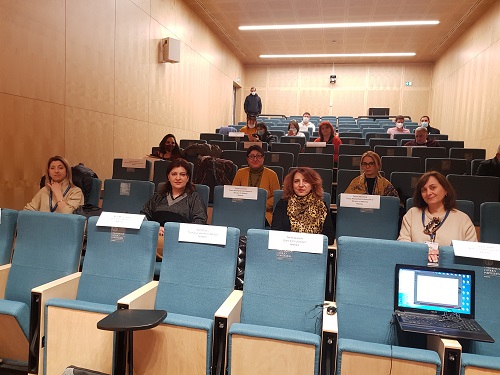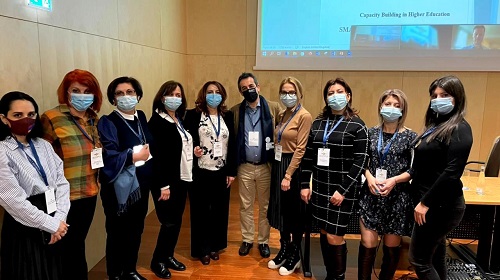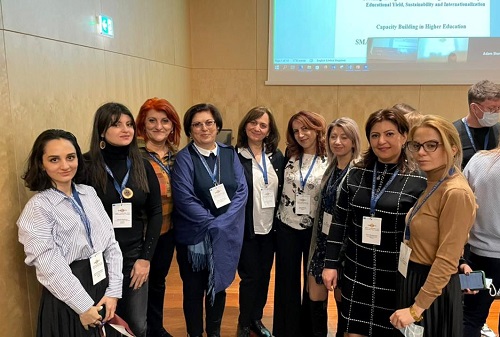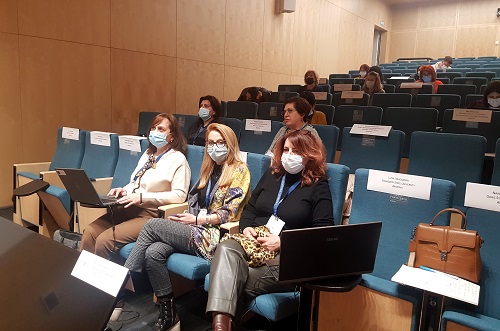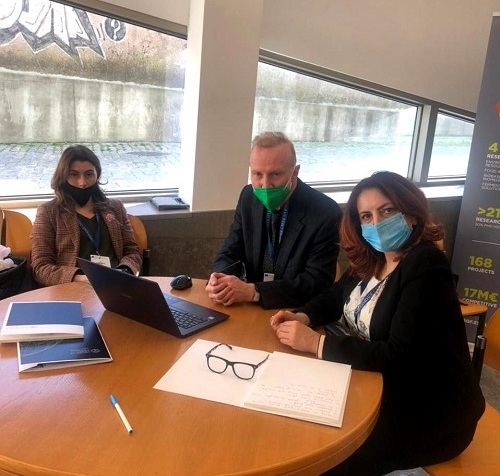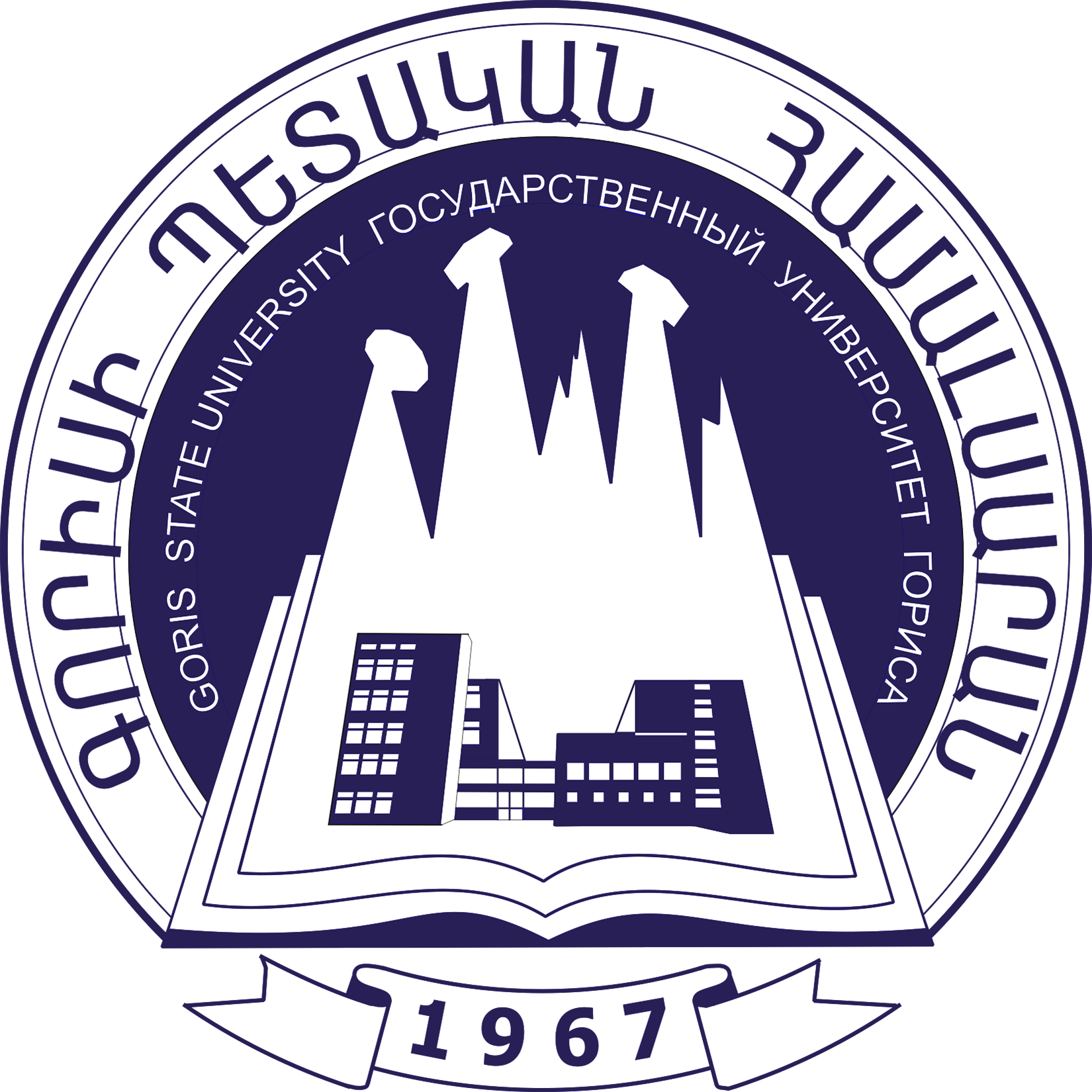ESP & ECTS/TUNING MODULAR TRAINING AT UCP
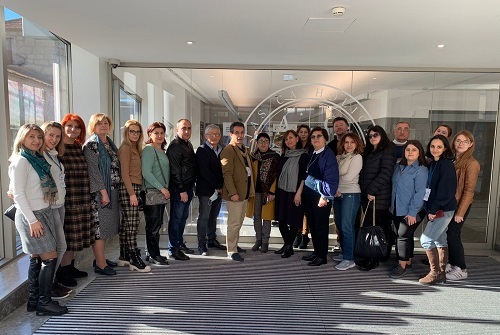
On 16-22 January 2022 in the frameworks of the Erasmus+ SMARTI (Support for Innovative Methodology, Approaches and Tools for Teaching through the Medium of English in order to improve Educational Yield, Sustainability and Internationalization) Project a training “English for Specific Purposes” was held at the Catholic University of Porto, Portugal. GSU was presented by Naira Safaryan, Head of the Department of ERC, local project coordinator, Lilit Atabekyan, Lecturer of the Chair of Biology and Chemistry, Program Officer, Naira Mezhlumyan, Lecturer of the Chair of Foreign Languages, Program Officer, as well as representatives of partner universities, organizations from Europe, the Russian Federation and Armenia.
The training was conducted in face-to-face and distance (hybrid) modes, based on the importance of training and the aim of ensuring greater participation. It has been implemented by EU trainers Gerard Cullen, Sven Riddell (Dresden University of Technology), Eduardo Cardoso, Tim Hogg (Porto Catholic University), Professors Maureen Royce, Ryan Wynn-Williams, Casey Beaumont (Liverpool John Moores University), Ieva Ziemele, Marina Platonova, Tatiana Smirnova (Riga Technical University).
The training courses included theoretical and practical stages. The working language was English.
The first day of the training started with the welcome speech given by Eduardo Cardoso, the representative of the host university. He presented the educational programs implemented at their university and general information about the university.
The results of the WP1 were summarized by Sven Riddell, a representative of the Technical University of Dresden, who also provided participants with general knowledge about the skills and tools for a successful presentation.
Each day of the training, practical tasks were assigned to the participants. For the first day task, each partner university had to prepare a two-slide presentation about the vision of National Awareness Day 2022.
The first part of the second day of the training was dedicated to the topics related to literacy. Trainer Sven Riddell introduced the participants to the skills of writing and presenting motivation letters, reports and minutes. In the second part of the day, Maria Platonova, a lecturer at the Technical University of Riga, made a presentation on student-centered teaching methodology, as well as several educational programs implemented at their university using the methodology “English as a Means of Teaching”. Then Tatiana Smirnova, a lecturer at the same university, spoke about the importance of the European Credit Transfer System (ECTS), emphasizing that it is the guarantee of expanding the student’s academic mobility and recognition of qualifications in the European Higher Education Area. The presentation was followed by interactive discussions on credit education systems in different countries, the use of Bloom’s taxonomy, MOOC (Massive Open Online Courses) and assessment systems.
On the third day of the training, RTU lecturers provided comprehensive information on their university’s international department, career and research centers, English-taught courses and curricula. This was followed by interactive discussions, drawing parallels between the relevant departments of universities in different countries.
The trainers on the fourth day of the course were Maureen Royce, Ryan Wynn-Williams, Casey Beaumont. They touched upon the issues related to the academic progress, continuous training of the teaching staff, the structure and content of the curriculum, the design of an effective curriculum and their solution. Using the example of the module “Academic English”, Dr. Ryan Wynn-Williams presented the key issues and factors of the development of the curriculum, the definition of educational outcomes, and the transition to student-centered learning. The participants were assigned to write four educational outcomes for the above module using the Padlet online platform.
On the fifth day, the trainers summarized the results of the training, presented their remarks and made an evaluation. Taking into account the need to introduce the best practices of partner universities, similar training courses will be conducted in each of the Armenian and Russian partner universities in the coming months, using the materials and presentations provided by the trainers.
